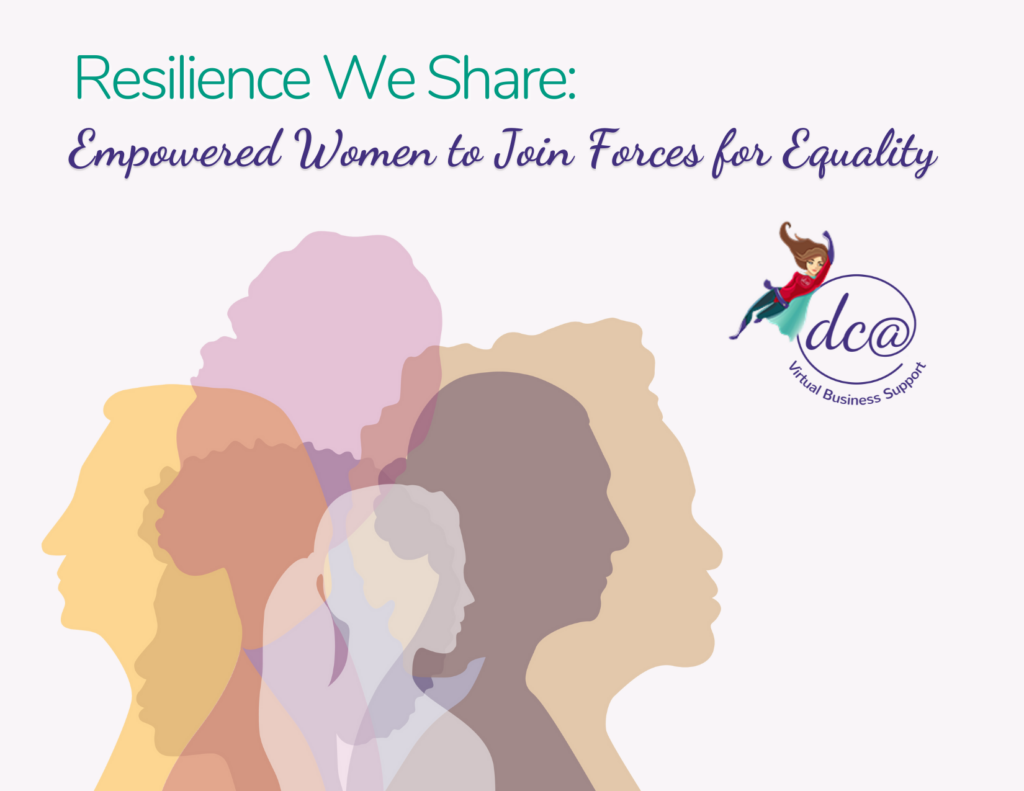
Resilience We Share: Empowered Women to Join Forces for Equality
As Women’s Equality Day approaches, we are looking at the challenging yet courageous fight for women’s equality in the United States. From the 1848 Seneca Falls Women’s Rights Convention to the ratification of the 19th Amendment to the first woman vice president of the United States, history is being written right before our eyes.
There was a point in time where it would have been unheard of for a woman to have the right to vote, to hold her own religious and political views, to work a job outside of the home, or to own her own business. But here we are doing all these things and much more.
Azra Khalfan-Kermali, the owner of Plaques by Azra, has experienced first-hand how empowering and encouraging it can be when people ally with women in their efforts to overcome gender inequality. She shared:
“I’ve been very fortunate. Throughout my upbringing, I’ve received encouragement, upliftment, and empowerment from both of my parents. Their own entrepreneurial spirit inspired me to carve out a place for myself and my business. Islam and other religions are often misrepresented in the media as guilty of suppressing women, of hindering their success outside the household. But Prophet Muhammad’s own wife, Khadija, was the most successful businessperson of her time in the Arabian Peninsula.”
Khalfan-Kermali’s story is inspiring but also draws attention to how our society can be unfairly quick to pass judgement on women. A judgement based on stereotypes or simply lacking the facts does not serve the advancement of women or a community.
Great strides have been taken in the battle against gender inequality, but we still have a long journey ahead of us before we can claim victory over it.
Though the U.S. is no longer in a national state of emergency due to the COVID-19 pandemic, the effects of it continue to linger. The pandemic has particularly been tough on women. In an economy where disparities between women and the workforce were already high, the pandemic has caused them to grow even stronger. The unemployment rate for women jumped by more than 12 percentage points between February and April of 2020 while the rate for men increased by less than 10 percentage points.
Prior to the COVID-19 outbreak, women were already working hard to support themselves and their families on mediocre wages. Then the pandemic hit which led to the disappearance of millions of jobs causing unemployment rates to skyrocket. On top of that, women with children were hit with the challenges that resulted from daycares, schools, and other programs being shut down. Many working fathers were affected by these events as well, but research has shown that working mothers have taken on more of the resulting childcare responsibilities. According to WIA Report, 64% of college-educated mothers reported by early June of 2020 that they had reduced their working hours at some point since March of 2020, compared to 36% of college-educated fathers.
The gender pay and wage gap has been a prominent topic of conversation for decades. You would think that by now the gap would be nonexistent, but it is still there, and it is big enough to fall through. The U.S. Bureau of Labor Statistics reported that the median earnings for women in 2021 were 83.1% of the median for men. Since 2004, the women’s to men’s earnings ratio has remained in the 80 to 83% range. This means that within the last 14 years there has been minimal to no progress in shrinking the gender pay gap.
Now that we know what some of the obstacles that are hindering women are, the question becomes how do we change it?
We believe the answer starts with allying with women in their fight for equality. If you are wondering what that means, we invite you to join Denise Cagan, President of DCA Virtual Business Support, on August 26th as she explores the topics of allyship, mentorship, and empowerment with special guest Shantera Chatman. To sign up, visit our event page.
